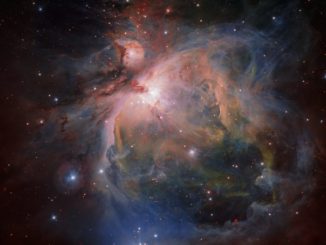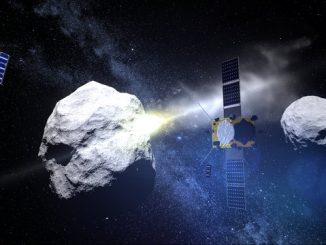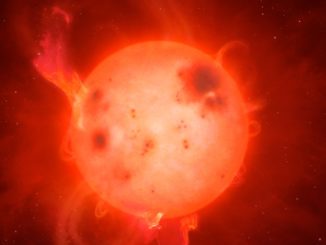
Back in October 2012, the near-Earth asteroid 2012 TC4 had a close encounter with Earth. It passed our planet at a distance only a quarter of that between the Earth and the Moon. In October 2017, this small asteroid, with a size of only about 15 to 30 metres, will return for another very close fly-by, making it the perfect object to test the asteroid detection and tracking network.
As 2012 TC4 could not be observed for several years, its orbit was not very well known. In particular, astronomers could not yet predict just how close it will come to Earth during its next fly-by in 2017. So finding it again and observing it in detail are crucial to learning more about how close it will get to Earth and refining our understanding of the path it will take.
Because the asteroid is so small and is still far away it is very faint and hence hard to spot. Nevertheless, using ESO’s Very Large Telescope (VLT), astronomers were able to obtain this image of our future visitor for the first time in many years, and to compute its trajectory. This new observation implies a fly-by distance from the surface of the Earth of about 44 000 kilometres, corresponding to 6.85 Earth radii, on 12 October 2017.
ESO’s VLT is not the only telescope observing 2012 TC4. A major international observational campaign to identify and study this object is currently under way, taking advantage of its very close encounter. Now that the VLT has found 2012 TC4 again, a new, updated orbit is available. Various telescopes all over the world are now able to locate the asteroid, and will soon start to observe it, taking advantage of this rare opportunity to study an asteroid in such detail.



